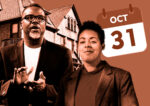Mayor Brandon Johnson’s proposal to raise the transfer-tax rate on all property sales of $1 million and up is now in the hands of Chicago voters.
Johnson’s Bring Chicago Home ordinance, a major focal point throughout his mayoral campaign, has received final approval from City Council, sending the legislation to the March ballot, Crain’s reported.
Now, a fiery referendum campaign is expected to ensue between the policy’s advocates who believe it will raise funds to address homelessness and a real estate industry concerned about its potential adverse effects.
Currently, Chicago’s transfer tax — a one-time fee charged when purchasing a property — is at a flat-rate of 0.75 percent for all sales, regardless of price. Under Johnson’s proposal, the rate would jump to 2 percent for sales between $1 million and $1.5 million, while rising to 3 percent for transactions greater than $1.5 million. However, the policy does offer a tax break for smaller deals and the majority of Chicago owners, as the rate would drop to 0.6 percent for property trades less than $1 million.
Advocates argue that the tax hike, estimated to generate $100 million annually, is an effective way to fund more affordable and permanent housing for Chicago’s growing homeless population.
Opponents of the plan believe it will add an additional burden to a real estate market that’s already dealing with an array of challenges, such as rising interest rates, record-high office vacancies and a tough lending environment. Plus, landlords could increase rents to offset the higher transfer tax.
If voters approve the referendum, City Council will need to pass separate measures next spring to modify the tax rate and create a dedicated fund to capture the increased revenue, specifically allocated for anti-homelessness initiatives. Critics have also raised concerns about the lack of a detailed spending plan, but officials emphasize that City Council would have control over allocating the revenue, the outlet said.
—Quinn Donoghue
Read more



